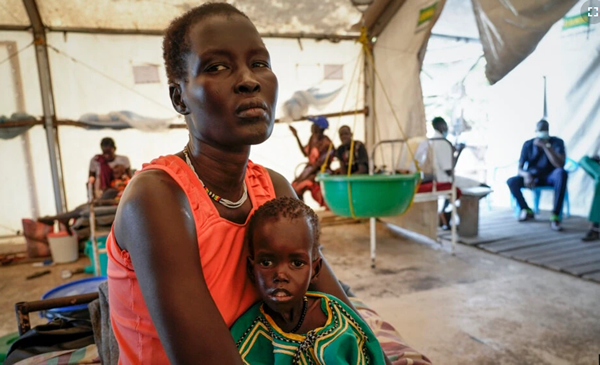
The United Nations warned Tuesday that Somalia is at risk of another famine, as consecutive droughts have withered crops and killed scores of livestock, and grain imports from Ukraine and Russia have dramatically dropped due to their war.
“Somalia is certainly heading toward a famine, if action is not taken now,” U.N. Humanitarian Coordinator for Somalia Adam Abdelmoula told reporters in a video call from Mogadishu.
He said if the international community waits until a formal declaration of famine to act, it will be too late.
“We have been there before — in 2011, severe drought resulted in a famine that killed a-quarter-of-a-million people, partly because we were slow to act. We must not allow that to happen again,” the humanitarian coordinator said.
Abdelmoula said that nearly half the country’s population, about 7.1 million people, are facing crisis-level food insecurity or worse at least through September. He said 213,000 of them would face famine-like conditions. The situation in south and central parts of the country is especially grim.
Somalia has endured four consecutive failed rainy seasons, plunging much of the country into severe drought, prompting the government to declare a state of emergency. Recent moderate rains have not alleviated the crisis.
Complicating the situation is Russia’s war on Ukraine.
Before Moscow’s February 24 invasion of its neighbor, Ukraine provided Somalia with about half of its grain imports, while Russia accounted for 35%.
“Both of those import sources have come to a complete halt,” Abdelmoula said. He added that global supply chain disruptions and increased fuel prices, as a result of the war, have also disproportionately affected Somalia.
“In some parts of the country, food prices have risen by 140% to 160%, leaving poor families hungry and destitute,” he said.
The United Nations appealed for $1.5 billion for its Somalia humanitarian response this year, but with the year half over, it has only received 18% of the funds needed. This has resulted in the shuttering of hundreds of U.N.-operated feeding centers and health clinics.
Abdelmoula said the World Food Program and partners have decreased food and cash handouts to affected communities by as much as 40% already. And of the 5.1 million people they had been trying to assist, they have only been able to reach 2.8 million.
“And the rest were left out,” the humanitarian coordinator said.
The situation is especially dangerous for children under five years old. Suspected cholera cases are on the rise and at least 8,700 cases of measles have been reported. Malnourished children are much more likely to succumb to those diseases.
In 2017, Somalia also faced the prospect of famine, but it was averted by concerted action by both the government and the international community.
Source: voanews.com























